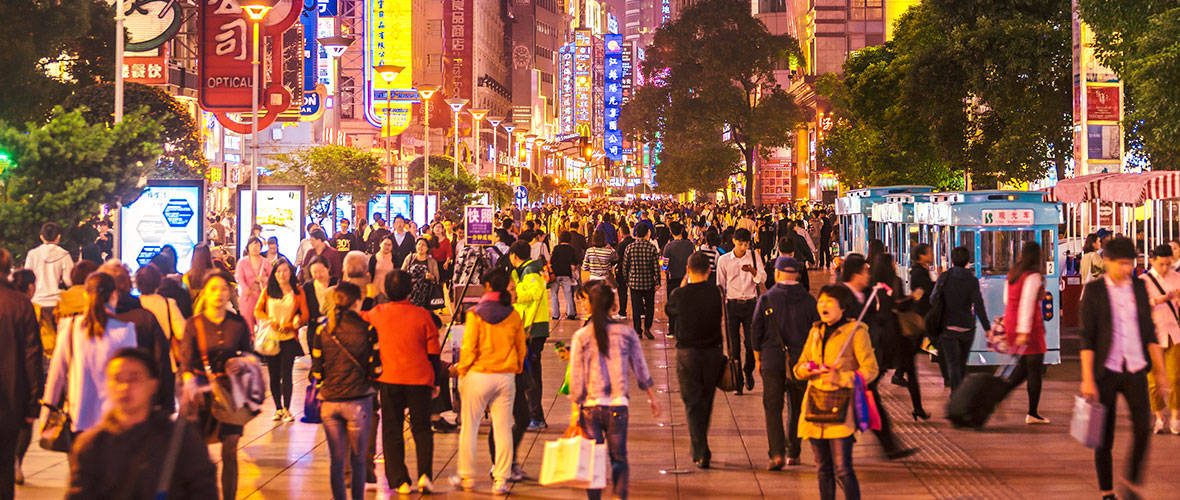Australia must harness our neighbours’ experience and skills if we are to meet the ongoing challenge of climate change, resource sustainability and an integrated global economy and thrive in what has been dubbed ‘the Asian century’.
With the Asian region accounting for over 63% of Australia’s two way trade, there is little doubt that our business future is firmly located within Asia.
Currently Europe (including, for the time being, the UK), is running a poor second at under 15%. This represents a quantum shift in Australia’s trade relations, and reflects our growing level of engagement with our closest neighbours.
Due to this, Philipp Ivanov, CEO of the Asia Society in Australia, says we must learn from the disparate group of cultures and peoples that makes up Asia.
These densely populated countries have actively responded to a number of economic, environmental, political and social factors and have created robust and growing economies. This has the flow on effect of offering enormous potential to further grow the size and value of our markets.
Overcoming the constraints
Throughout Asia, government and industry have worked together to develop comprehensive and pragmatic policies and planning approaches that promote efficient urban development. These developments incorporate technological, transport, residential and business priorities.
To make the most of limited resources, infrastructure and networks, countries such as Singapore, Japan and China have gone underground.
They aim for improved usage of existing metropolises, in addition to creating new 24/7 interconnected cities. Businesses have demonstrated their preference for those locations that provide the best services and experiences for residents and visitors alike, abandoning the soulless ‘business parks’ developed in previous decades on our cities’ outskirts.
Achieving a consensus
Another critical success factor for many Asian countries has been the development of a bi-partisan approach within a robust democratic framework.
 Philipp notes examples such as Taiwan’s support for semi-conductor manufacturers and South Korea’s dominance of the online gaming industry. Businesses can only succeed within stable regulatory and financial environments. They will thrive when they receive the structural support to develop domestically and expand internationally.
Philipp notes examples such as Taiwan’s support for semi-conductor manufacturers and South Korea’s dominance of the online gaming industry. Businesses can only succeed within stable regulatory and financial environments. They will thrive when they receive the structural support to develop domestically and expand internationally.
Philipp underlines the importance of achieving a consensus on nation-building activities. With a commitment to shared national priorities, critical infrastructure is removed from the game of political football or hollow electioneering.
Transforming our economic base
Until recently, Australia’s economic prosperity has relied to a significant degree on our trade in primary commodities with our Asian partners.
Philipp says that the end of the ‘commodities boom’ will provide increased opportunities for Australian business in Asia.
He believes that the burgeoning prosperity across Southern and Eastern Asia offers us access to more sophisticated and higher value markets, providing services in such areas as tourism, banking, agriculture, environmental conservation and education.
The trade in services requires a far greater investment in time, energy and commitment by comparison with the transactional nature of the trade in commodities.
These longer-term, more involved, engagements will provide significant and growing bilateral benefits, improving our level of connectivity, inter-dependency and profitability.
Australia will be able to leverage our many internal resources to take advantage of the shift in markets, mining the skills and knowledge of our migrant population base, our enthusiastic and early adoption of technological advances and our entrepreneurial nature, Philipp says.
The future is in our hands
Business is based on relationships, and relationships can only start when there is openness and a willingness to engage on both sides.
Philipp believes that leading organisations such as AECOM, as well as providers of other specialist and high value services, need to lead the way in interacting with our Asian neighbours.
Support and guidance is available from the Asia Society, Infrastructure Australia and various governmental bodies, however there has to be a clear and comprehensive business strategy underpinning the engagement.
The Asian century is there for the taking – and we are in a great place to take it!

